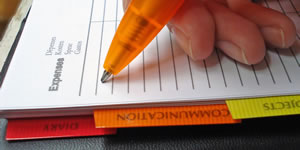Steps to a Cakewalk Closing
New York Times April 27, 2012
There’s no lack of information on the Internet about real estate closings. But according to Sandy Gadow, the author of “The Complete Guide to Your Real Estate Closing” and a Sotheby’s broker who has taken part in thousands of closings, both buyers and sellers should know certain basic things to make a closing go well.
Most important, do your homework. There’s no such thing as being too well prepared. Even if there’s a fleet of lawyers present, buyers and sellers should educate themselves as fully as possible about what will take place. For example, you do know what an Aztec recognition agreement is, don’t you? (It’s a document that describes what will happen in the event of a lien against the buyer.)
Hire the right people. You wouldn’t ask a heart surgeon to perform a lung transplant, right? Make sure you choose a lawyer who is familiar with the laws in your geographical area and who has had experience with similar proceedings. If you’re buying a big-ticket co-op in the heart of Manhattan, don’t choose a lawyer whose biggest deal was a lean-to in the boonies.
Before the closing, write down all the questions you intend to ask, so you won’t forget them. Making a checklist sounds like grade school, but do it anyway.
Bring a valid form of identification. (A library card won’t cut it.) You have no idea how many people forget something so simple. And your signature can’t be acknowledged by a notary public unless you show official proof of your identity.
Show up on time. Closings can take long enough as it is. Don’t make matters worse by straggling in three hours late.
And since closings can take hours, don’t schedule yours late in the day, especially if you plan to move in right away. You don’t want a moving van loaded with all your worldly possessions double-parked outside the office till the wee hours.
Published: April 27, 2012 NY Times




